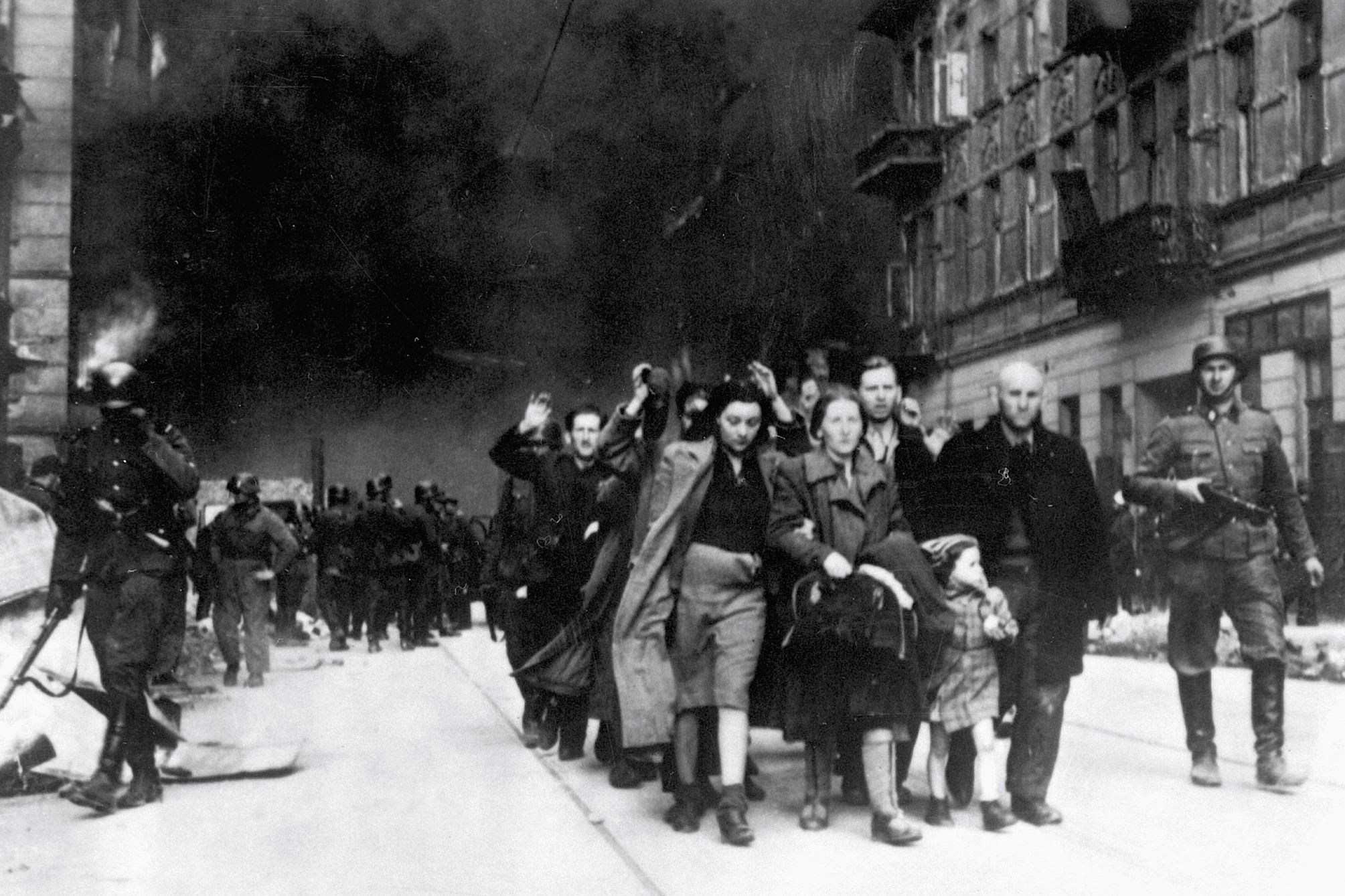We Must Never Give Up Hope

This Dvar Torah was originally published in the Jewish News of London by Laurie Reznik and edited for clarity.

Warsaw Uprising 1943 | Photo from commons.wikimedia.org
It is 80 years since the armed resistance that led to the Warsaw Uprising began on 8th Shevat 5703 (18 January 1943).
This was supposed to be the day of the second deportation from the Warsaw ghetto, of a group of 8,000 people. Jewish resistance fighters from the Jewish Combat Organization (ZOB) and the Jewish Military Union (ZZW) pooled their resources, which had been smuggled into the ghetto, and attacked their German oppressors.
Through their sheer grit and determination, these brave fighters were able to immobilize the deportation and although it did not stop entirely, fewer people were taken away as a result.
With only a small number of guns, gasoline bottles and other makeshift weapons, the Jews managed to temporarily overpower the Germans. This eventually led to the full-scale Warsaw Ghetto Uprising three months later.
The United States Holocaust Memorial Museum’s Encyclopedia of Camps and Ghettos, 1933-1935 (Vol. 2) describes the Uprising as:
“[the] revolt that became one of the most significant occurrences in the history of the Jewish people. At the beginning, no one gave the ghetto any chance to hold out. But this seemingly hopeless struggle showed that even the years of the Nazi terror regime and the passivity of the Polish surroundings were not enough to break the fighting spirit of the youth movement members and the ghetto dwellers. The revolt became a symbol of resistance and heroism” (p.459).
In this week’s parasha, Beshalach, we read about the incredible courage displayed by an early figure in our history.
The Jewish people had been released from slavery in Egypt, only for Pharaoh to change his mind and chase after them with a large army.
The Israelites were trapped between them and the Red Sea, with nowhere to turn. Naturally, they were in a state of panic.
The Gemara [Talmud] in Sotah 37a tells us that there was one man who didn’t panic. Nachshon ben Amminadav, brother-in-law to Aharon the High Priest and a prince of the tribe of Judah, jumped into the water first.
The water did not split immediately; in fact, he nearly drowned. But his tribe followed him and when Moshe raised his staff to the water, the sea split and the Jewish people were able to walk through, leaving them unharmed by their pursuers.
The Gemara goes on to explain that because of his actions, Nachshon merited to become the ancestor of kings, and the tribe of Judah the royal house.
Jewish heroes are not afraid of mere mortals. In different circumstances, Nachshon ben Amminadav and the ghetto fighters both held up against enormous challenges and did not despair.
They put their trust in God and stood up for what they believed in.
Whether their enemies were Egyptian, German or otherwise, our leaders have always been brave, taken chances and, most importantly, never given up hope in the ideals for which they stand.
We too should follow their ideals.
Shabbat Shalom




